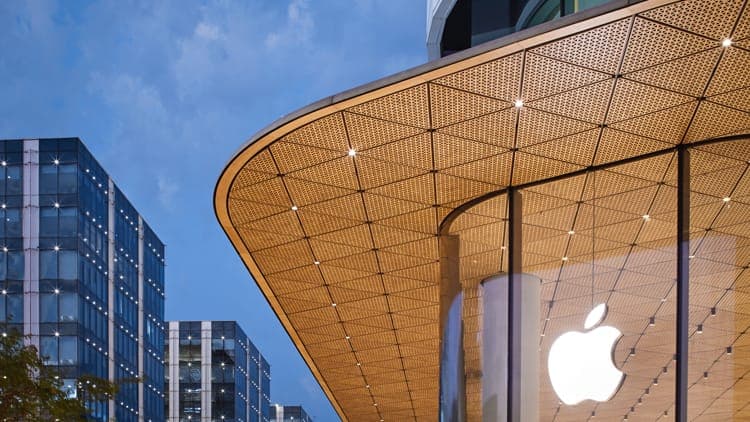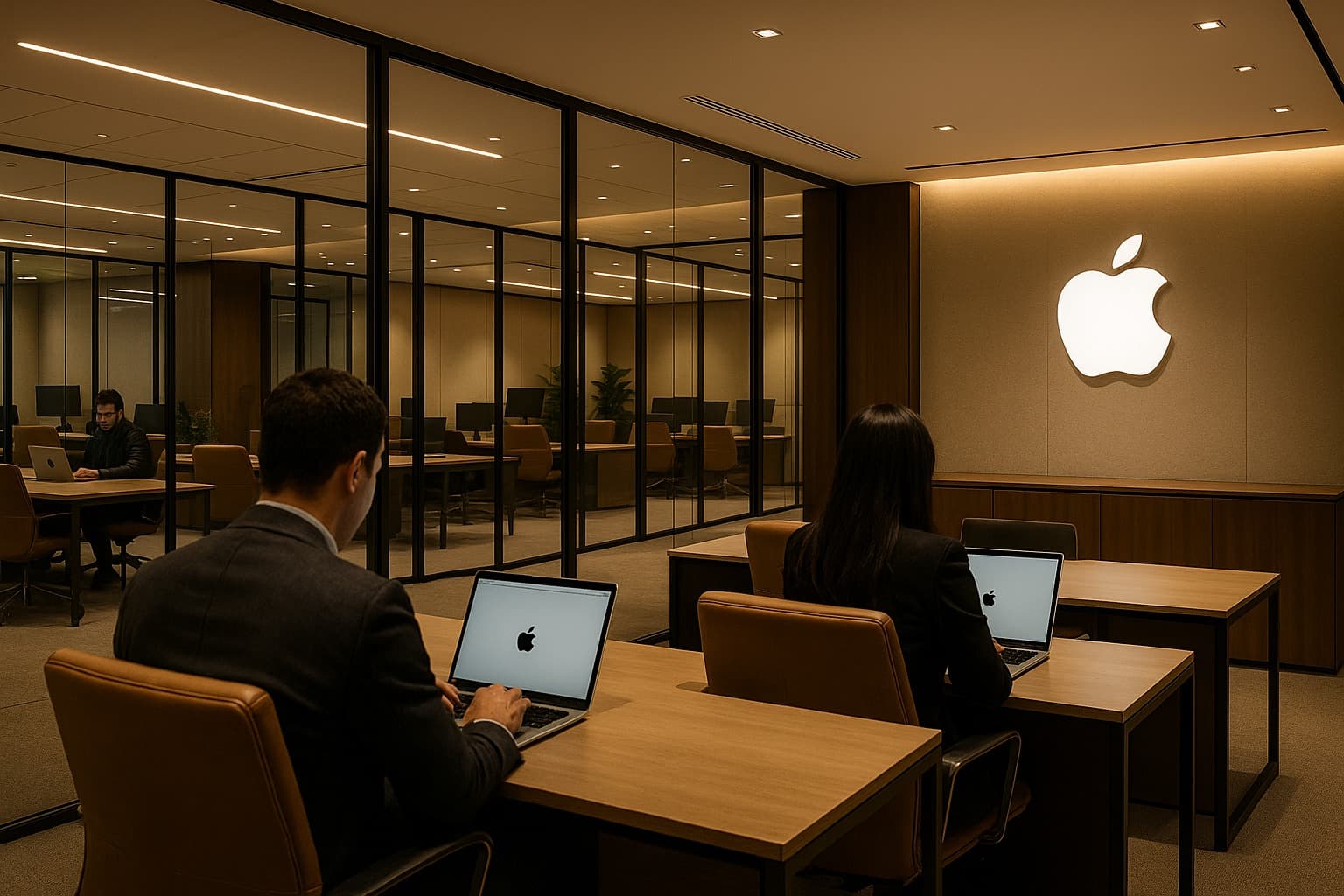Apple's Record-Breaking Lease in Mumbai: A Sign of India's Growing Importance
Summary
Apple India leased office space in Mumbai's BKC for a record ₹1,738 per sq ft, signaling a strong commitment to the Indian market. This move is expected to influence property prices and attract more global companies.

Apple India Breaks Records: Leases BKC Office at a Whopping ₹1,738 Per Sq Ft
100-Word Summary
Apple India has taken Mumbai’s commercial real estate scene by storm by leasing 6,526 sq ft office space in Bandra Kurla Complex (BKC) at a jaw-dropping ₹1,738 per sq ft — one of the highest rentals India has ever seen. This deal is more than just numbers; it’s a bold signal of Apple’s long-term commitment to India. For BKC, already Mumbai’s crown jewel of business districts, this cements its status as the ultimate corporate address. Experts believe the move will not only reset rental benchmarks but also inspire more global giants to anchor themselves in India’s financial capital.
Full Humanized Story (~1000 Words)
Mumbai has always been a city of dreams, a city where space is scarce but ambition knows no bounds. And when a global giant like Apple decides to sign a lease in this city, the story naturally becomes bigger than just a real estate transaction.
Apple India has made headlines once again by leasing 6,526 sq ft of office space in Bandra Kurla Complex (BKC) at a record-breaking ₹1,738 per sq ft. For most of us, those numbers are dizzying — but for Apple, it’s a statement. It’s about planting a deeper flag in India, a market it sees as central to its global future.
The Magic of BKC
Anyone who has spent even an hour in BKC knows it’s unlike any other part of Mumbai. The wide boulevards, gleaming glass towers, posh cafés, and proximity to the airport make it feel like a different world compared to the city’s crowded gullies.
For Apple, this is a perfect fit. BKC isn’t just an office hub, it’s a stage — a place where brands are seen, where deals are made, where prestige is everything. Having an office here is like saying: “We’ve arrived, and we’re here to stay.”
Breaking Down the Deal
So, what does this lease really mean in numbers? At ₹1,738 per sq ft, Apple’s monthly rent works out to over ₹1.13 crore. That’s more than what some Mumbai luxury apartments cost in EMIs.

For most companies, this would feel like a stretch. But for Apple, it’s strategic. The brand thrives on positioning itself at the very top — in technology, in retail, and now, even in real estate.
More Than Just an Office
Here’s where it gets interesting: this isn’t just about finding a workspace. Apple already has its flagship store in BKC, which opened to roaring crowds and became a landmark overnight. By taking corporate space nearby, Apple is creating an ecosystem — retail in one corner, office in another, all under the BKC umbrella.
It’s like they’re weaving themselves into the very fabric of Mumbai’s corporate and cultural heartbeat.
Ripple Effect on Mumbai’s Property Market
This one deal is enough to make ripples across the city.
Landlords in BKC are already sharpening their pencils, hoping to push rents higher now that Apple has set the bar.
Other global companies will likely follow, wanting to be in the same neighbourhood as Apple — because let’s face it, being next door to the world’s most valuable company carries weight.
Residential real estate nearby will also see a bump. Executives who want to cut travel time will look for premium homes in Bandra, Santacruz, or even Kurla’s new developments.
Mumbai’s property market thrives on stories like this — one big deal, and suddenly the whole city feels like it’s moving a step closer to New York, London, or Singapore.
Apple’s Larger India Story
This move also ties into Apple’s broader India journey. Over the past few years, Apple has:
Opened flagship retail stores in Mumbai and Delhi.
Expanded iPhone production in India, reducing dependence on China.
Invested heavily in marketing, services, and supply chains across the country.
In short, India is no longer just a sales market. It’s becoming an operational and strategic hub. Leasing one of the most expensive office spaces in the country is Apple’s way of saying, “We’re betting on India — big time.”
Why BKC is Irresistible
Beyond the glitz, there’s practicality. BKC sits right in the middle of the city, with easy access to both domestic and international airports. The area has become home to global banks, law firms, and tech companies. For international teams flying in and out, it offers convenience. For employees, it’s prestige. For the brand, it’s visibility.
In a way, choosing BKC was less about cost and more about identity. Apple wants to be seen where the world does business.
The Human Side of It

Imagine being an Apple India employee walking into that office every morning. The pride, the energy, the sense of being part of something bigger than just another 9-to-5 job. That’s the intangible value Apple gets from this lease.
And imagine the buzz for the chaiwalas, restaurants, and service staff around BKC. More executives, more activity, more life in the ecosystem. For Mumbai, deals like this aren’t abstract — they ripple through daily life in subtle ways.
Questions of Sustainability
Of course, deals like this raise eyebrows too. Is such a high rent sustainable? Will smaller firms be priced out, making BKC an exclusive playground for global giants?
Real estate experts say yes, rents may keep rising, but Mumbai has a way of balancing itself. While BKC shines as the elite district, new hubs like Navi Mumbai, Thane, and Powai will continue attracting growing firms.
In other words, Apple might raise the bar, but it won’t break the system.
Closing Thoughts
Mumbai is a city that thrives on ambition, and Apple’s record-breaking lease feels like a perfect match for its spirit. In a place where space is gold, Apple has chosen to spend lavishly to secure not just an office, but a presence, an identity, and a story.
At the end of the day, this deal is not just about ₹1,738 per sq ft. It’s about confidence — confidence in Mumbai, in India, and in the future.
And maybe that’s what makes this story more exciting than the numbers themselves: it reminds us that the world’s biggest players are looking at India not as an option, but as the stage for their next big leap.
